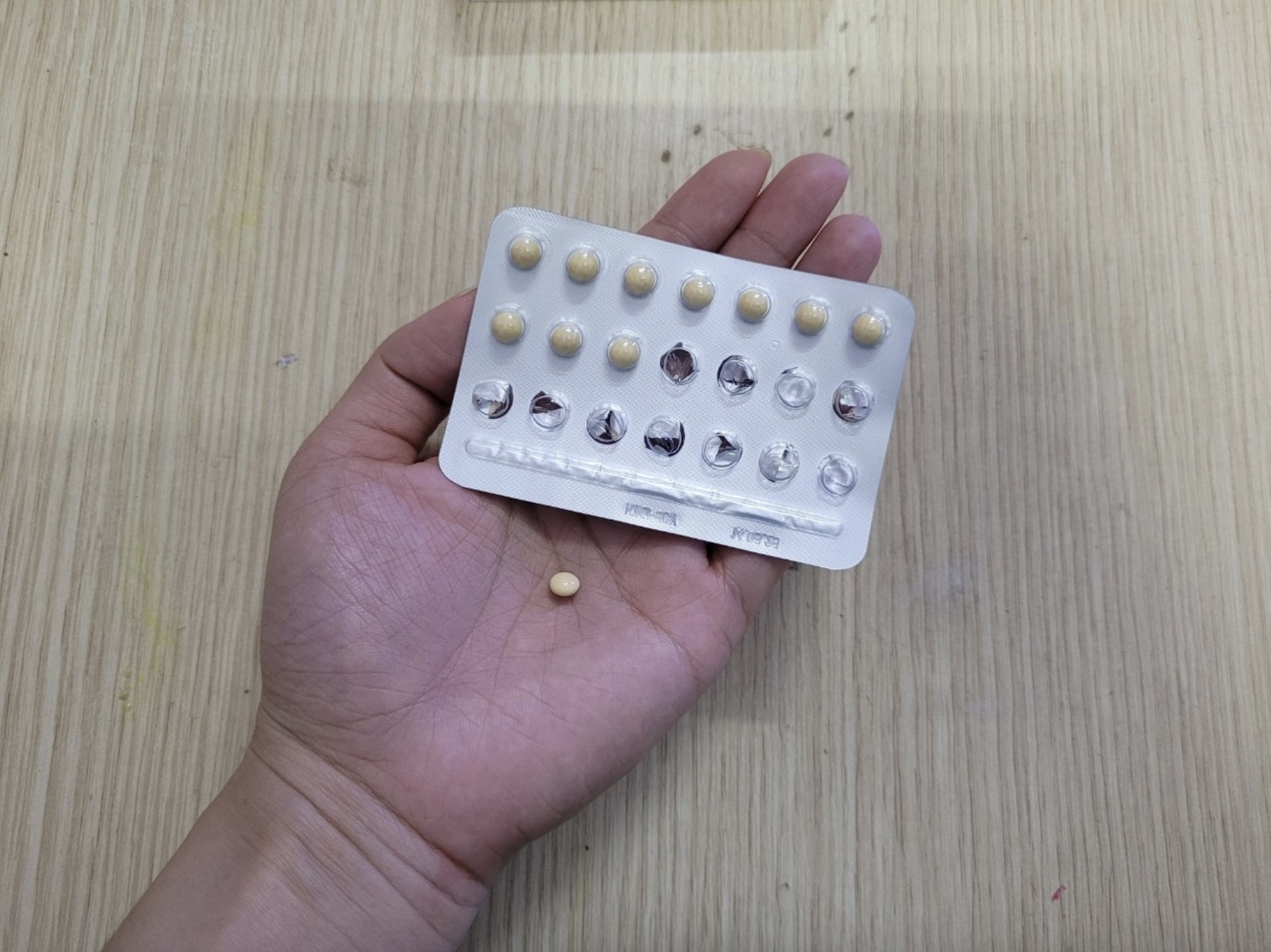Minh, 20, from Ho Chi Minh City, developed acne before a summer trip and decided to self-medicate with birth control pills purchased online. After two months, although her acne improved, she experienced digestive issues, nausea, irregular periods, and uncontrolled weight gain. A dermatologist diagnosed her with a severe hormonal imbalance caused by the misuse of birth control pills. Minh spent millions of Vietnamese dong and several months recovering, fearful of long-term health consequences.
Minh's story isn't unique. Han, 22, took two doses of emergency contraception to treat acne. Three weeks later, she developed a red, burning rash, worsened acne, and menstrual irregularities. Doctor Nguyen Tien Thanh, a member of the Vietnam Dermatology Association, explained that Han confused daily birth control pills with emergency contraception, resulting in severe irritant contact dermatitis.
"Emergency contraception causes hormonal changes in the body, which can exacerbate acne," Doctor Thanh explained, adding that this makes treatment more complex.
Many individuals, particularly those with persistent acne unresponsive to other treatments, are self-medicating with birth control pills, viewing them as a last resort.
 |
Doctor Yen examines a patient. Photo courtesy of the doctor |
Doctor Yen examines a patient. Photo courtesy of the doctor
According to Doctor Thai Thanh Yen from the Dermatology - Cosmetic Dermatology Department of Ho Chi Minh City University of Medicine and Pharmacy Hospital, oral contraceptives have proven effective in treating acne. The US Food and Drug Administration (FDA) has approved several daily birth control pills for this purpose. However, these medications should only be prescribed by a doctor after a thorough evaluation of hormonal and menstrual factors.
The appropriate medication is a combined oral contraceptive pill containing estrogen and progestin. These hormones work by suppressing androgen (male hormone) production and increasing sex hormone-binding globulin (SHBG), a protein that binds to androgens in the blood, preventing them from stimulating hair follicles and skin. This reduces sebum production, which can alleviate acne.
Doctors may prescribe birth control pills for all acne severities. Ideal candidates are healthy women who have started menstruating, require contraception, don't plan to become pregnant soon, have oily skin or excessive hair growth, and haven't responded to other acne treatments like topical creams and oral antibiotics. This method is contraindicated for pregnant or breastfeeding women, those with liver disease, cardiovascular issues, blood clotting disorders, diabetes, breast cancer, arterial or venous blockage, and other conditions.
Birth control pills don't clear acne immediately. Noticeable improvement may take several months. Incorrect usage or use by unsuitable individuals can lead to unwanted side effects and worsen the condition.
Modern birth control pills contain lower doses of estrogen and progesterone than older versions, significantly reducing risks. However, women using oral contraceptives still face potential side effects, including breast pain, headaches, irregular periods, abnormal bleeding, missed periods, or temporary acne flare-ups. Weight changes, bloating, and increased appetite can also occur.
Less common but more serious side effects include liver and gallbladder disease, depression or mood swings, cardiovascular disease, stroke, and blood clots.
Recently, a 45-year-old woman experienced a life-threatening pulmonary embolism, likely linked to over 10 years of continuous use of combined oral contraceptives, according to doctors at 115 People's Hospital.
The Cerebral Stroke Department of 108 Military Central Hospital treated a 38-year-old woman who had been using birth control pills for years. Admitted in a coma with persistent headaches, she was diagnosed with cerebral venous sinus thrombosis.
A 2016 study by Alain Weill published in the British Medical Journal (BMJ) estimated that out of 100,000 women using birth control pills for a year, 33 would develop pulmonary embolism.
A 2024 Iranian study found that over 50% of women with cerebral venous thrombosis had a history of birth control pill use, with 70% having used second-generation pills. A 2015 meta-analysis indicated a 7.59 times higher risk of cerebral venous thrombosis in birth control pill users compared to non-users.
The estrogen in birth control pills can trigger blood clotting by increasing levels of fibrinogen and prothrombin, factors that promote clot formation. Estrogen also reduces protein S, a natural anticoagulant. For individuals with the Factor V Leiden gene mutation, the risk of thrombosis while using birth control pills can increase 20- to 30-fold.
 |
Many people self-medicate with birth control pills for acne. Illustrative photo: Tra My |
Many people self-medicate with birth control pills for acne. Illustrative photo: Tra My
Experts recommend consulting a specialist before using monthly birth control pills long-term. Necessary examinations and personalized advice ensure safe and effective use. Never self-medicate or prolong usage without professional guidance. Women under 35 who smoke, are overweight, or have a history of thrombosis or stroke should be especially cautious. Seek immediate medical attention for unusual symptoms like progressively worsening headaches, especially at night, unresponsive to pain medication, along with unusual muscle spasms or altered consciousness. During consultations, provide complete information about the medication and duration of use.
Doctor Yen suggests safer alternative acne treatments: dietary adjustments, gentle skincare avoiding irritants, sun protection, and topical medications like azelaic acid, benzoyl peroxide, or retinoids.
My Y












